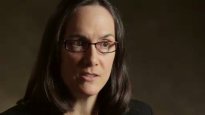
by Linda Fisher Thornton
What is the Greater Good?
As leaders, we must think beyond our own interests to the interests of those we lead and serve, and the interests of communities and the world. We must take a long-term view, keeping in mind the broad impact of our day-to-day decisions.
Many people refer to the “greater good” as an important part of leading ethically, and use different words to describe it. The descriptions they use collectively paint a picture of a responsibility to think beyond ourselves and to work for a better, inclusive society.
These are some of my favorite observations on the question “What is the Greater Good?”
“In terms of power and influence you can forget about the church, forget politics. There is no more powerful institution in society than business… The business of business should not be about money, it should be about responsibility. It should be about public good, not private greed.”
Anita Roddick, Business as (Un)Usual: My Entrepreneurial Journey, Profit With Principles, Anita Roddick Books
◊
“People are autonomous individuals who may rightfully strive to achieve outcomes and goals that will personally benefit them, but as members of a human community are they not obligated to consider other’s outcomes, variously termed the public interest, the greater good, or the common good?”
Jepson School of Leadership Studies, The University of Richmond [Symposium Announcement], For the Greater Good of All: Perspectives on Individualism, Society, and Leadership, online at jepson.richmond.edu
◊
“…an underlying moral presence shared by all humanity – a set of precepts so fundamental that they dissolve borders, transcend races, and outlast cultural traditions. English scholar and author A. H. Halsey, from his office at Oxford University, calls it ‘a moral dimension’ that permeates all of human activity. Father Bernard Przewozny, from his monastery outside of Rome, speaks of ‘certain absolute norms.’ Stanford University’s John Gardner simply calls it ‘common ground.”
Rushworth M. Kidder in Shared Values for a Troubled World: Conversations with Men and Women of Conscience, Jossey-Bass
◊
“If the world were to agree on a vision of the common good, what might it be? Frances Hesselbein argues that to some extent such a vision already exists, one that embraces healthy children, strong families, good schools, decent housing, and work that dignifies, all in the cohesive, inclusive society that cares about all of its people.”
John C. Knapp in For the Common Good: The Ethics of Leadership in the 21st Century, Praeger
◊
“The common good, then, consists primarily of having the social systems, institutions, and environments on which we all depend work in a manner that benefits all people. Examples of particular common goods or parts of the common good include an accessible and affordable public health care system, and effective system of public safety and security, peace among the nations of the world, a just legal and political system, and unpolluted natural environment, and a flourishing economic system. Because such systems, institutions, and environments have such a powerful impact on the well-being of members of a society, it is no surprise that virtually every social problem in one way or another is linked to how well these systems and institutions are functioning.”
Manuel Velasquez, Claire Andre, Thomas Shanks, S.J., and Michael J. Meyer, The Common Good, Santa Clara University Website, online at scu.edu
Clearly, when leaders consider the “Greater Good” they are taking a level of responsibility that extends far beyond their corporate walls.
- Responsibility
- for things that are greater than ourselves
- that benefit others, and
- that represent standards of well-being for all of us.
- Responsibility
- for being respectful to others,
- for being inclusive, and
- for acting as a citizen of the global community.
- Responsibility
- for supporting justice and peace,
- for supporting healthy social systems,
- for protecting the environment, and
- for contributing to the well-being of society

For more, see new book 7 Lenses and the 21 Question Assessment: How Current is My Message About Ethics?
 2014 Bronze Axiom Business Book Award Winner
About 7 Lenses
Info@LeadinginContext.com @leadingincontxt @7Lenses
2014 Bronze Axiom Business Book Award Winner
About 7 Lenses
Info@LeadinginContext.com @leadingincontxt @7Lenses
© 2012 Leading in Context LLC
Thank you for your question. When we say that ethics includes the greater good, we mean that we are responsible for thinking farther ahead than our own lifetimes, and for considering the impact of our choices on all people around the world.
LikeLike
What do we really mean when saying Ethics are greater good?
LikeLike